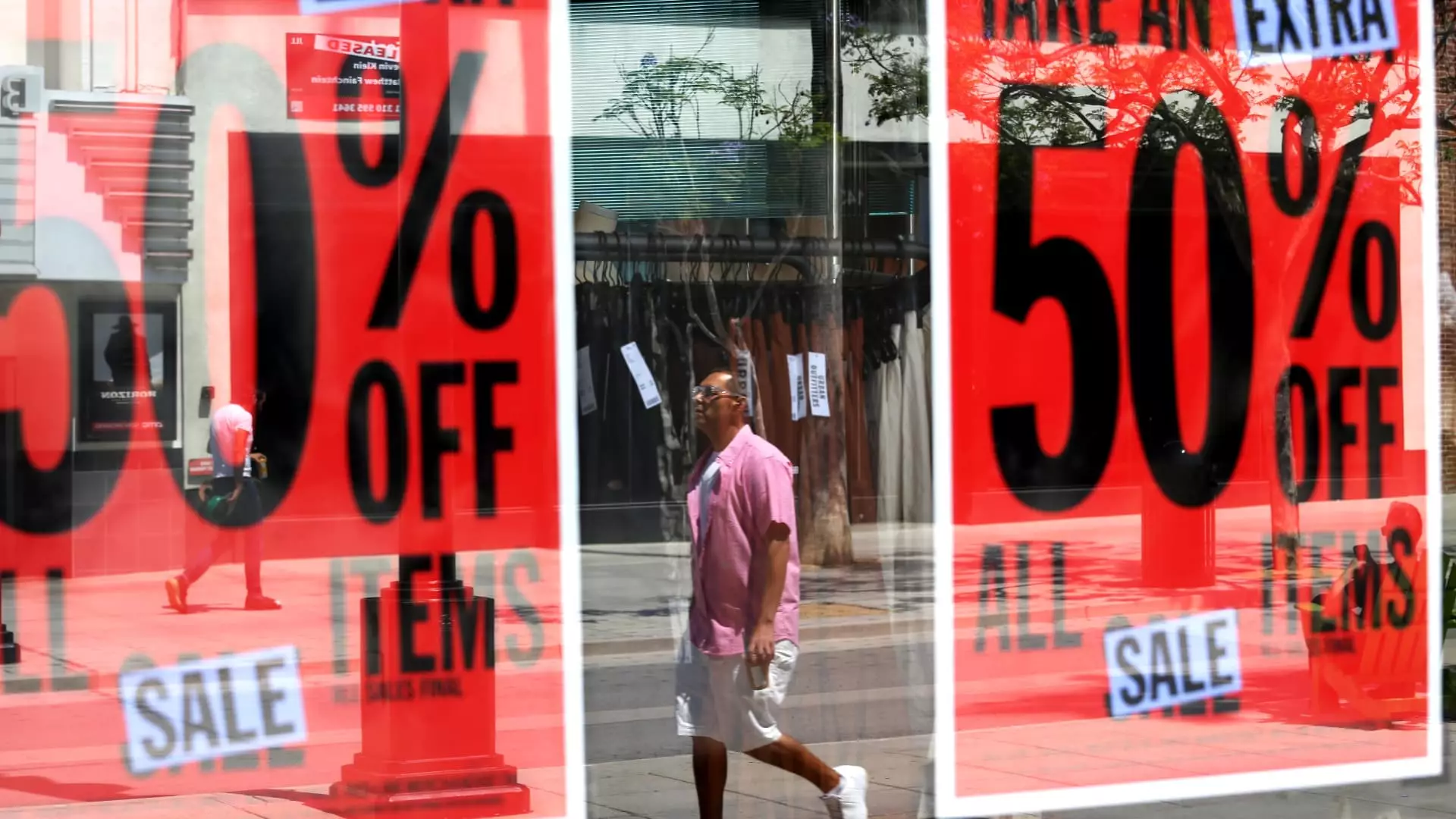The tumultuous landscape of retail today is increasingly defined by the unpredictable consequences of Donald Trump’s trade war. Retailers are firmly caught in a bind, where strategic marketing meets abject uncertainty. The looming tariffs, particularly on goods from China, have pushed a host of retailers—both mainstream giants and smaller, direct-to-consumer brands—to pivot quickly, often adopting distressing tactics as they urge consumers to “buy now” before prices inflate or products disappear. This crisis mode is not only concerning; it indicates a broader unsettling trend across the retail industry that reveals some stark and troubling truths about consumer behavior and corporate responsibility.
The initial announcement of proposed tariffs triggered waves of panic throughout the retail sector, forcing businesses to consider how these tariffs would impact profitability and planning. Even after a temporary easing of rates, the very act of unpredictability becomes a supervillain that retailers can’t fight effectively. It is astonishing how many companies are tethered to the whims of trade policy, ultimately becoming reactive instead of proactive in their approach to consumer engagement. Consumers are caught in this whirlwind, and as retail experts warn of impending declines in spending, there is a palpable urgency to buy what’s available before the economic bombshell hits.
Preemptive Promotions: A Desperate Measure?
One disturbing yet strategic tactic has been the launch of pre-tariff sales, as companies like Bare Necessities launched promotions that offered consumers up to 30% off before prices inevitably increase. This not only stretches the ethical boundaries of honest marketing but also portrays a landscape where consumers are manipulated into urgency-driven purchases fueled by fear. While one might applaud the businesses for their quick-thinking, what happens when the allure of discounts turns them into something grotesque—merely an exploitative leverage point? It is no longer just about sales, but about survival at the cost of genuine consumer trust.
Sonia Lapinsky, an industry consultant, captures the essence of this turmoil, stating that retailers are frantically trying to bolster their finances before a predicted collapse in demand. The race to ‘get as much demand as possible’ speaks volumes about the serious fracture within retail morale. Retailers are so stressed by an impending downturn that they find themselves accentuating short-term gains over long-standing customer relationships. One begs the question: when did the industry lose sight of its essence—solution-driven and customer-centric philosophies—in favor of quantity-at-all-costs tactics?
The Vulnerability of Smaller Brands
The disparities laid bare by this tariff crisis are most apparent in how retailers are coping with varying degrees of vulnerability based on their size. Larger retailers, equipped with expansive global supply chains, might shake off such tremors more readily than smaller brands, which are often left in a precarious position. Lauren Beitelspacher from Babson College highlights how smaller firms may be disproportionately affected, often facing greater difficulties in maintaining cash flow and adaptability. The tyrannies of tariffs don’t just strain businesses; they serve to fortify the oligopoly of retail giants, leaving budding enterprises struggling for relevance.
These smaller brands are not just economic entities; they embody dreams, individual entrepreneurism, and innovation, all of which can potentially be quashed by external pressures like tariffs. As they scrabble to navigate ambiguous trade routes, they risk alienating their segments of loyal customers who perhaps associated their purchases with a story of ethical consumerism. It highlights a larger concern: as retail recovers from these challenges, will it remain as dynamic and diverse, or will a dangerous consolidation occur?
Humor in a Crisis: A Double-Edged Sword
While many brands scramble to maintain relevance amidst the tariff chaos, others, like luggage company Beis, resorted to humor in their approach. Their message encapsulated a relatable mix of confusion and levity, using relatable language to cut the tension. Yet, therein lies another contentious issue—the fine line between candor and trivialization. Barbara Kahn from The Wharton School discusses the strategic deployment of humor to sidestep political affiliations during tumultuous times. It makes one wonder: does leveraging humor truly neutralize a politically charged situation, or does it diminish the legitimacy of serious discussions around economic consequences?
In a polarized environment, employing levity can offer respite, but it may also dilute the gravity of a crisis that demands thoughtful discourse. Retailers need to acknowledge that a clever quip can only go so far in addressing the underlying tension associated with tariffs; real transparency could replace comedy as a more effective trust-building strategy. Even in stormy waters, abandoning a sense of integrity in favor of a laugh could be an immensely shortsighted move.
As the retail landscape faces tempestuous disruptions, the repercussions of Trump’s tariffs resonate. The paradox—where temporary gains come at the cost of long-term relationships—invites scrutiny of what retail really represents in society. Are we headed toward an era marked by ephemeral sales strategies at the expense of trust, or can we reclaim a narrative rooted in enduring integrity? The answers remain turbulent, much like the winds of change sweeping through the retail industry.

